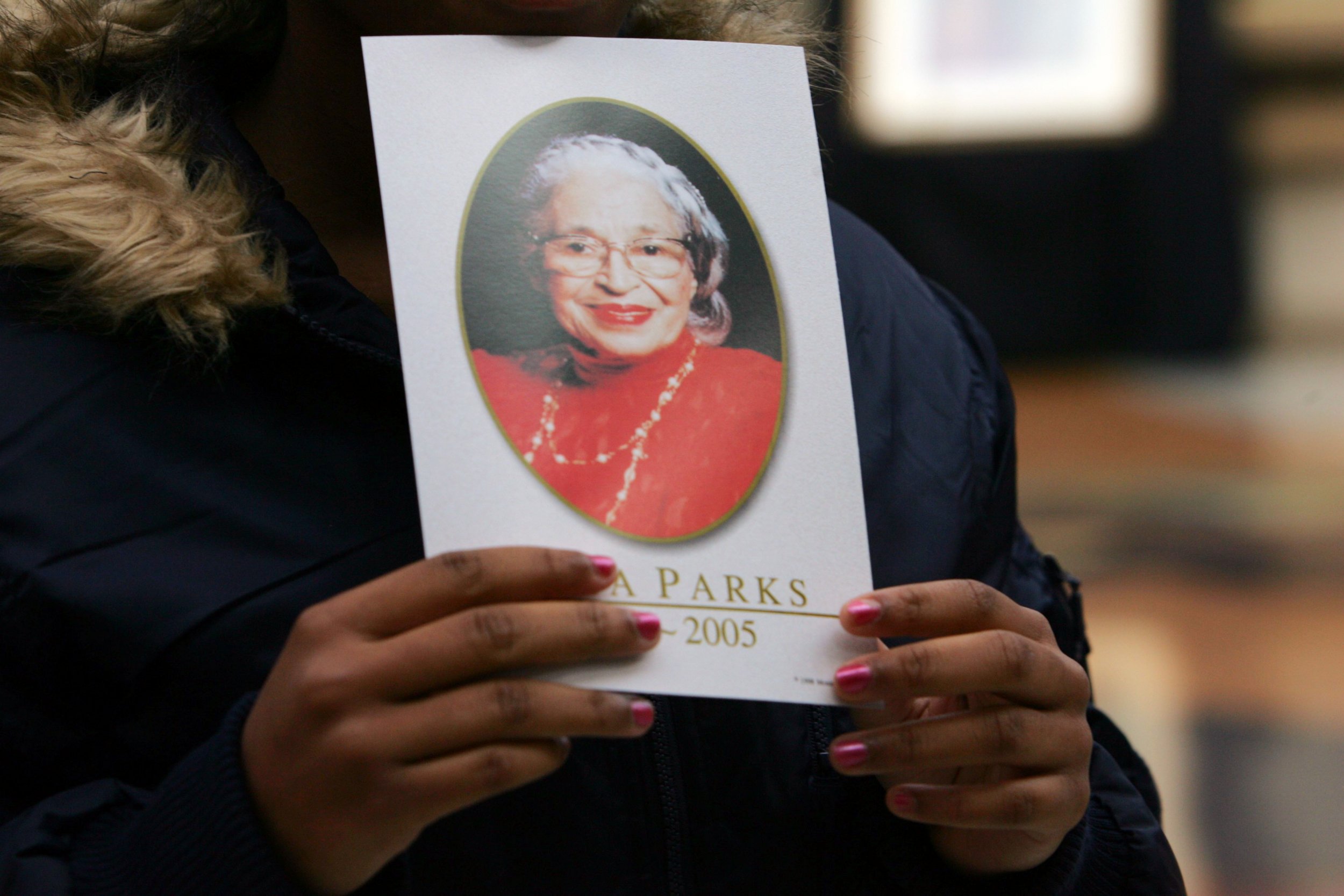
The story of Rosa Parks's arrest goes something like this:
A little after 6 p.m., 60 years ago today, Rosa Parks was arrested in Montgomery, Alabama, for refusing to move from the white section of the city bus to the rear reserved for blacks. The offense on her arrest record was simply labeled "misc." for miscellaneous.
Within the hour, Parks had been booked for violating Montgomery's Chapter 6, Section 11 code. Within five days, the 42-year-old seamstress had made her way into the public record, as The New York Times reported the growing story of the bus boycott organized by the African-American community and a young preacher named Martin Luther King Jr.
Nearly 90 percent of Montgomery's black population participated in the boycott, ultimately leading to the end of the color ban on public buses within the city. By December, one year later, the Supreme Court followed suit, making such segregated practices in public transportation unconstitutional.
The rest, we know, is history. But is it? Much of what Parks began is continued today, albeit in different ways and for different times.
Parks's world was one of authoritarian rule governed by terror. According to the Montgomery Equal Justice Initiative, some 326 blacks were lynched in Alabama alone in the period between 1877 and 1950. Those, of course, are the killings we know of—many more lives were likely unclaimed by statistics. Nor were the lives of those forced to live in the shadows of a repressive regime for fear of retribution counted—all for simple hope of becoming full citizens.
What is striking 60 years later is that by at least the Guardian's recent account of police shootings of African-Americans, 2015 is likely to see about the same number of deaths by blacks at the hands of police as in all of the lynchings in the state of Alabama between the end of Reconstruction and the dawn of the civil rights era combined.
While these are not easy parallels, we can know of a certainty that the racial disparities in law enforcement, the criminal justice system and our political economy woefully mirror those of Parks's time. The Black Lives Matter movement offers a window into the ways in which Parks's triumphal moment was just that—a powerful but momentary projection of democratic potential.
Rosa Parks's moment led to others, to be sure, but the ongoing struggle for racial justice in the United States remains not a linear progression toward true equality, as sometimes President Barack Obama and others suggest. No, it is more like the "boomerang of history" written about in Ralph Ellison's classic novel Invisible Man. We are flung forward by heroic acts and yet disturbingly returned to ground all too familiar.
Ellison's novel, published two short years after Parks's arrest, was all too prescient. But so was Parks, who, despite efforts to turn her into a docile, sweet grandmother of sorts, was in truth an uncompromising radical for racial justice. Her hero was Malcolm X, and her position to the right of self-defense was seldom discussed publicly for fear of losing the prevailing narrative of nonviolent struggle so associated with the movement at the time.
I suspect she'd feel exceedingly proud of this new generation, who in their own way refuse to sit where society compels them to sit. They too refuse to have their actions dismissed as "miscellaneous" or their calls for a new, better and more inclusive society derided as mere "trouble-making."
Like Parks and those who followed, this generation of activists hopes not merely to hurl the boomerang back. They seek a new instrument—one fitting for the times—lest another 60 years go by without making the deep, fundamental changes necessary to truly make the fearsome present a distant memory. We should be listening attentively to their cries.
Saladin Ambar teaches political science at Lehigh University. His book Malcolm X at Oxford Union: Racial Politics in a Global Era was nominated for a Hurston/Wright Legacy Award in nonfiction in 2015.